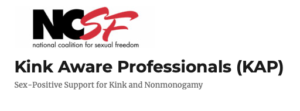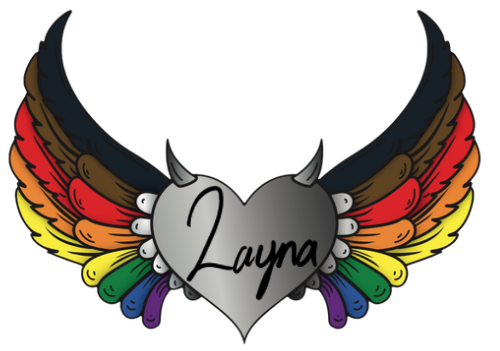As a therapist I work with clients who may find that some therapies are not suited to, or particularly understanding of their needs, this includes people who identify as LGBTQIA+, GSRD, Polyam, non-mongamous, Sex Positive Activists, and Sex Professionals.
The majority of my practice, and volunteering time is spent with these clients, not only those who self-identify but also those who are questioning and find it difficult to connect with what can often heteronormative monocultural traditional therapy.
I practice what could be called GSRD Therapy (Gender, Sex and Relationship Diverse) classified as supporting, understanding and evaluating on face value of non-heteronormative ways of living and existing.
Professionally I am passionate about raising education and awareness of those identities that were previously taboo or seen as paraphillia.
Unfortunately, there are still some less than favourable attitudes towards subject areas that I work within.
Any sexuality or gender identity that you self-identify as will very rarely be the subject of any therapy and it is merely that you are reassured that if it is raised during the course of therapy then it is something I am totally capable and knowledgeable about to explore with you if so desired.
The people that I work with may not only experience situations unique to their identities but also may require unique solutions to those issues.
I’m a ‘kink knowledgeable’ therapist (NCSF definition), which means I understand and am accepting of BDSM lifestyles, relationships and activities, and will not try to ‘cure’ you of your interest in BDSM nor dissuade you from participating in BDSM activities. I follow the rule of being SSC within your own lived experience of kink.
I have a full boundaries statement available on request that can more greatly explain the level of confidentiality I provide to those within the diverse intersectional community.
There are many ways for consensual adults to express and experience intimacy, sexuality, sex and gender
I believe there are variations of sexuality, gender and relationship diversity which are best accepted and integrated into a person’s core identity.
Instead of attempting to repress and shun these variations because of societal pressure, if they pose no risk of becoming a paraphillia then they should be included and accepted into a persons intimate relationship.
Mental health professionals are now affirmative. Sadly, many are not affirmative of other variations of sexuality or gender – such as bisexuality, polyamory, or the enjoyment of BDSM or erotic fetishes and they could impair intimacy.
This whole process can be easier if you are working with a therapist like myself who is comfortable and experienced with working with diverse identities
For many people self-acceptance of their orientations outside of the sociocultural narrative and tropes is essential for both peace of mind and intimacy. For example just as self-acceptance of being gay is essential for a gay man to be intimate, self-acceptance of a fetish is often essential for a kinky person to love intimately.
Anything you ever do should be consensual and you should be using a system such as R.A.CK, S.S.C, Traffic lights or other system.
Therapy directed at repressing such behaviours often creates shame and internalised guilt and phobia, and this reduces a person’s capacity for intimacy
Negative attitudes toward gender and erotic variation (and non-monogamy) are fairly widespread among mental health professionals, even though a version of the Diagnostic manual for the field (DSM-V) does not consider these variations mental health issues – unless they cause distress for the person.


